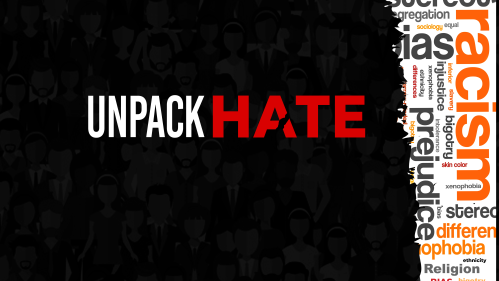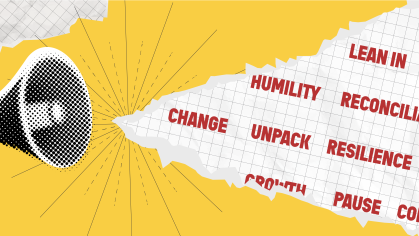
Anti-Asian Racism
Education as Disruption Resource Guide
To effectively combat hate, we must start by unpacking its causes.
Education as disruption is an invitation to choose to be curious about what underpins hate and bias.
Why Do We Hate?
"The reasons are complex, but following are some of the factors that may play a role in helping us understand hate and, hopefully, work toward change."
- Allison Abrams, The Psychology of Hate
- Fear of "The Other"
- Fear of Ourselves
- Lack of Self-compassion
- It fills a void
- Social and Cultural Factors
Hatred has to be learned, which means it can be unlearned. University Equity and Inclusion curated these resources to help you learn about anti-Asian racism.
Accordion Content
-
The long history of US racism against Asian Americans, from ‘yellow peril’ to ‘model minority’ to the ‘Chinese virus’ by Adrian De Leon in The Conversation
Opinion: Asian American Racism Isn’t New by Qian Julie Wang in The New York Times
Many South Asians Lack Local Resources to Withstand Hate Crimes by Shiva Kooragayala in Urban Institute
Confronting the Invisibility of anti-Asian Racism by Jennifer Lee Brookings Institute in Brookings Institute
Accordion Content
-
The Making of Asian America: A History by Erika Lee
Minor Feelings: An Asian American Reckoning by Cathy Park Hong
Campus Counterspaces: Black and Latinx Students' Search for Community at Historically White Universities by Micere Keels
Yellow by Frank Hu
Accordion Content
-
I Am Not Your Asian Stereotype (TED Talk) by Canwen Xu
We Need To Talk About Anti-Asian Hate from The Try Guys
Rising Against Asian Hate: One Day in March from PBS
We Are Not A Stereotype: Breaking Down Asian Pacific American Bias from Smithsonian Asian Pacific American Center
Asian: How You See Me from Participant
Where Are You Really From? from Branon Yoo, ASU School of Social Transformation
Remaining silent as hate rises has consequences. We must speak up!
Hateful acts aim to intimidate and hinder our goals of an inclusive community.
We reject hatred and call on all members of our community to offer respect in words and actions toward each other, especially when we disagree — that is the difference between being in proximity and being in a community.


